- Home
- Jack Higgins
Hell Is Always Today Page 3
Hell Is Always Today Read online
Page 3
Mary Beresford gave a shocked gasp, Marlowe looked decidedly worried and at that precise moment the record on the stereogram came to an end.
Joanna Hartmann grabbed Miller’s arm. “Come and play the piano for us.” She pulled him away and called brightly over her shoulder to Marlowe who stood there, a drink in each hand, mouth gaping. “He’s marvellous. You’d swear it was Oscar Peterson.”
Miller was angry, damned angry, but not only at Mary Beresford. She couldn’t help being the woman she was, but he was tired of the sort of vicious attack on the police that met him every time he picked up a newspaper, tired of cheap remarks and jibes about police inefficiency from members of the public who didn’t seem to appreciate that every detective who could be spared had been working ninety to a hundred hours a week since the Rainlover had first killed, in an attempt to root him out. But how did you find one terrifyingly insane human being in a city of three-quarters of a million? A man with no record, who did not kill for gain, who did not even kill for sexual reasons. Someone who just killed out of some dark compulsion that even the psychiatrists hadn’t been able to help them with.
The piano was the best, a Bechstein grand and he sat down, swallowed the double gin and tonic that Marlowe handed him and moved into a cool and complicated version of “The Lady Is a Tramp.” One or two people came across to stand at the piano watching, because they knew talent when they heard it and playing a good jazz piano was Miller’s greatest love. He moved from one number into another. It was perhaps fifteen minutes later when he heard the door bell chime.
“Probably Jack and Bruno,” Joanna said to Marlowe. “I’ll get it.”
Miller had a clear view of the door as she crossed the room. He looked down at the keyboard again and as he slowed to the end of his number, Mary Beresford gave a shocked gasp.
When Miller turned, a spectacularly fleshy-looking young tart in black plastic mac, mini-skirt and knee-length leather boots stood at the top of the steps beside the maid who had apparently got to the door before Joanna. A couple of men moved into the room behind her. It was pretty obvious which was Bruno Faulkner from what Miller had heard, and it was just as obvious what the man was up to as he helped the girl off with her coat and looked quickly around the room, a look of eager expectancy on his face.
Strangely enough it was the girl Miller felt sorry for. She was pretty enough in her own way and very, very nubile with that touch of raw cynicism common to the sort of young woman who has slept around too often and too early. She tilted her chin in a kind of bravado as she looked about her, but she was going to be hurt, that much was obvious. Quite suddenly Miller knew with complete certainty that he didn’t like Bruno Faulkner one little bit. He lit a cigarette and started to play—“Blue Moon.”
Of course Joanna Hartmann carried it all off superbly as he knew she would. She walked straight up to Faulkner, kissed him on the cheek and said, “Hello, darling, what kept you?”
“I’ve been working, Joanna,” Faulkner told her. “But I’ll tell you about that later. First, I’d like you to meet Grace. I hope you don’t mind us bringing her along.”
“Of course not.” She turned to Grace with her most charming smile. “Hello, my dear.”
The girl stared at her open-mouthed. “But you’re Joanna Hartmann. I’ve seen you on the telly.” Her voice had dropped into a whisper. “I saw your last film.”
“I hope you enjoyed it.” Joanna smiled sweetly at Morgan. “Jack, be an angel. Get Grace a drink and introduce her to one or two people. See she enjoys herself.”
“Glad to, Joanna.” Morgan guided the girl away expertly, sat her in a chair by the piano. “I’ll get you a drink. Back in a jiffy.”
She sat there looking hopelessly out of place. The attitude of the other guests was what interested Miller most. Some of the women were amused in a rather condescending way, others quite obviously highly indignant at having to breathe the same air. Most of the men on the other hand glanced at her covertly with a sort of lascivious approval. Morgan seemed to be taking his time and she put a hand to her hair nervously and tilted her chin at an ageing white-haired lady who looked her over as if she were a lump of dirt.
Miller liked her for that. She was getting the worst kind of raw deal from people who ought to know better, but seldom did, and she was damned if she was going to let them grind her down. He caught her eye and grinned. “Anything you’d like to hear?”
She crossed to the piano and one or two people who had been standing there moved away. “What about ‘St. Louis Blues?’” she said. “I like that.”
“My pleasure. What’s your name?”
“Grace Packard.”
He moved into a solid, pushing arrangement of the great jazz classic that had her snapping her fingers. “That’s the greatest,” she cried, eyes shining. “Do you do this for a living?”
He shook his head. “Kicks, that’s all. I couldn’t stand the kind of life the pro musicians lead. One-night stands till the early hours, tour after tour and all at the union rate. No icing on that kind of cake.”
“I suppose not. Do you come here often?”
“First time.”
“I thought so,” she grinned with a sort of gamin charm. “A right bunch of zombies.”
Morgan arrived with a drink for her. She put it down on top of the piano and clutched at his arm. “This place is like a morgue. Let’s live it up a little.”
Morgan didn’t seem unwilling and followed her on to the floor. As Miller came to the end of the number someone turned the stereogram on again, probably out of sheer bloody-mindedness. He wasn’t particularly worried, got to his feet and moved to the bar. Joanna Hartmann and Faulkner were standing very close together no more than a yard from him and as he waited for the barman to mix him a large gin and tonic, he couldn’t help but overhear their conversation.
“Always the lady, Joanna,” Faulkner said. “Doesn’t anything ever disturb your poise?”
“Poor Bruno, have I spoiled your little joke? Where did you pick her up, by the way?”
“The public bar of The King’s Arms. I’d hoped she might enliven the proceedings. At least I’ve succeeded in annoying Frank from the look on his face. Thanks be for small mercies.”
Joanna shook her head and smiled. “What am I going to do with you?”
“I could make several very pleasant suggestions. Variations on a theme, but all eminently worthwhile.”
Before she could reply, Mary Beresford approached and Faulkner louted low. “Madam, all homage.”
There was real disgust on her face. “You are really the most disgusting man I know. How dare you bring that dreadful creature here.”
“Now there’s a deathless line if you like. Presumably from one of those Victorian melodramas you used to star in.” She flinched visibly and he turned and looked towards the girl who was dancing with Morgan. “In any case what’s so dreadful about a rather luscious young bird enjoying herself. But forgive me. I was forgetting how long it was since you were in that happy state, Aunt Mary.” The old woman turned and walked away and Faulkner held up a hand defensively. “I know, I’ve done it again.”
“Couldn’t you just ignore her?” Joanna asked.
“Sorry, but she very definitely brings out the worst in me. Have a martini.”
As the barman mixed them, Joanna noticed Miller and smiled. “Now here’s someone I want you to meet, Bruno. Nick Miller. He’s a policeman.”
Faulkner turned, examined Miller coolly and sighed. “Dammit all, Joanna, there is a limit you know. I do draw the line at coppers. Where on earth did you find him?”
“Oh, I crawled out of the woodwork,” Miller said pleasantly, restraining a sudden impulse to put his right foot squarely between Faulkner’s thighs.
Joanna looked worried and something moved in the big man’s eyes, but at that moment the door chimes sounded. Miller glanced across, mainly out of curiosity. When the maid opened the door he saw Jack Brady standing in the hall, his battered, Irish f
ace infinitely preferable to any that he had so far met with that evening.
He put down his glass and said to Joanna. “Looks as if I’m wanted.”
“Surely not,” she said in considerable relief.
Miller grinned and turned to Faulkner. “I’d like to say it’s been nice, but then you get used to meeting all sorts in my line of work.”
He moved through the crowd rapidly before the big man could reply, took his coat and cap from the maid and gave Brady a push into the hall. “Let’s get out of here.”
The door closed behind them as he pulled on his trenchcoat. Detective Constable Jack Brady shook his head sadly. “Free booze, too. I should be ashamed to take you away.”
“Not from that lot you shouldn’t. What’s up?”
“Gunner Doyle’s on the loose.”
Miller paused, a frown of astonishment on his face. “What did you say?”
“They moved him into the Infirmary from Manningham Gaol yesterday with suspected food poisoning. Missed him half an hour ago.”
“What’s he served—two and a half years?”
“Out of a five stretch.”
“The daft bastard. He could have been out in another ten months with remission.” Miller sighed and shook his head. “Come on then, Jack, let’s see if we can find him.”
3
Faulkner ordered his third martini and Joanna said, “Where have you been for the past two days?”
“Working,” he told her. “Damned hard. When were you last at the studio?”
“Wednesday.”
“There were three figures in the group then. Now there are four.”
There was real concern in her voice and she put a hand on his arm. “That’s really too much, Bruno, even for you. You’ll kill yourself.”
“Nonesense. When it’s there, it’s got to come out, Joanna. Nothing else matters. You’re a creative artist yourself. You know what I mean.”
“Even so, when this commission is finished you’re taking a long holiday.”
Frank Marlowe joined them and she said, “I’ve just been telling Bruno it’s time he took a holiday.”
“What an excellent idea. Why not the Bahamas? Six months…at least.”
“I love you too.” Faulkner grinned and turned to Joanna. “Coming with me?”
“I’d love to, but Frank’s lined me up for the lead in Mannheim’s new play. If there’s agreement on terms we go into rehearsal next month.”
“But you’ve only just finished a film.” Bruno turned to Marlowe and demanded angrily, “What’s wrong with you? Can’t you ever see beyond ten per cent of the gross?”
As Marlowe put down his glass, his hand was shaking slightly. “Now look, I’ve taken just about as much as I intend to take from you.”
Joanna got in between them quickly. “You’re not being fair, Bruno. Frank is the best agent there is, everyone knows that. If a thing wasn’t right for me he’d say so. This is too good a chance to miss and it’s time I went back to the stage for a while. I’ve almost forgotten how to act properly.”
The door bell chimed again and the maid admitted another couple. “It’s Sam Hagerty and his wife,” Joanna said. “I’ll have to say hello. Try to get on, you two. I’ll be back soon.”
She moved away through the crowd and Marlowe watched her go, his love showing plainly on his face.
Faulkner smiled gently. “A lovely girl, wouldn’t you say?”
Marlowe glared at him in a kind of helpless rage and Faulkner turned to the barman. “Two brandies, please. Better make it a large one for my friend. He isn’t feeling too well.”
Jack Morgan and Grace Packard were dancing to a slow cool blues. She glanced towards Faulkner who was still at the bar. “He’s a funny one, isn’t he?”
“Who, Bruno?”
She nodded. “Coming to a do like this in those old clothes. Bringing me. Have you known him long?”
“We were at school together.”
“What’s he do for a living?”
“He’s a sculptor.”
“I might have known it was something like that. Is he any good?”
“Some people would tell you he’s the best there is.”
She nodded soberly. “Maybe that explains him. I mean when you’re the best, you don’t need to bother about what other people think, do you?”
“I wouldn’t know.”
“Mind you, he looks a bit of a wild man to me. Look at the way he handled Harold at the pub.”
Morgan shrugged. “He’s just full of pleasant little tricks like that. Judo, aikido, karate—you name it, Bruno’s got it.”
“Can he snap a brick in half with the edge of his hand? I saw a bloke do that once on the telly.”
“His favourite party trick.”
She pulled away from him abruptly and pushed through the crowd to Faulkner.
“Enjoying yourself?” he demanded.
“It’s fabulous. I never thought it would be anything like this.”
Faulkner turned to Marlowe who stood at his side drinking morosely. “There you are, Frank. Fairy tales do come true after all.”
“Jack says you can smash a brick with the edge of your hand,” Grace said.
“Only when I’m on my second bottle.”
“I saw it on television once, but I thought they’d faked it.”
Faulkner shook his head. “It can be done right enough. Unfortunately I don’t happen to have a brick on me right now.”
Marlowe seized his chance. “Come now, Bruno,” he said, an edge of malice in his voice. “You mustn’t disappoint the little lady. We’ve heard a lot about your prowess at karate…a lot of talk, that is. As I remember a karate expert can snap a plank of wood as easily as a brick. Would this do?”
He indicated a hardwood chopping block on the bar and Faulkner grinned. “You’ve just made a bad mistake, Frank.”
He swept the board clean of fruit, balanced it across a couple of ashtrays and raised his voice theatrically. “Give me room, good people. Give me room.”
Those near at hand crowded round and Mary Beresford pushed her way to the front followed by Joanna who looked decidedly uncertain about the whole thing.
“What on earth are you doing, Bruno?”
Faulkner ignored her. “A little bit of hush, please.”
He gave a terrible cry and his right hand swung down, splintering the block, scattering several glasses. There was a sudden gasp followed by a general buzz of conversation. Grace cried out in delight and Mary Beresford pushed forward.
“When are you going to start acting your age?” she demanded, her accent slipping at least forty-five years. “Smashing the place up like a stupid teenage lout.”
“And why don’t you try minding your own business, you silly old cow?”
The rage in his voice, the violence in his eyes reduced the room to silence. Mary Beresford stared at him, her face very white, the visible expression one of unutterable shock.
“How dare you,” she whispered.
“Another of those deathless lines of yours.”
Marlowe grabbed at his arm. “You can’t talk to her like that.”
Faulkner lashed out sideways without even looking, catching him in the face. Marlowe staggered back, clutching at the bar, glasses flying in every direction.
In the general uproar which followed, Joanna moved forward angrily. “I think you’d better leave, Bruno.”
Strangely, Faulkner seemed to have complete control of himself. “Must I?” He turned to Grace. “Looks as though I’m not wanted. Are you coming or staying?” She hesitated and he shrugged. “Suit yourself.”
He pushed his way through the crowd to the door. As he reached it, Grace arrived breathless. “Changed your mind?” he enquired.
“Maybe I have.”
He helped her on with her plastic mac. “How would you like to earn a fiver?”
She looked at him blankly. “What did you say?”
“A fiver…just to pose for me for a cou
ple of minutes.”
“Well, that’s a new name for it.”
“Are you on?” he said calmly.
She smiled. “Okay.”
“Let’s go then.”
He opened the door and as Grace Packard went out into the hall, Joanna emerged from the crowd and paused at the bottom of the steps. Faulkner remembered her birthday present and took the leather case from his pocket. “Here, I was forgetting.” He threw the case and as she caught it, called, “Happy birthday.”
He went out, closing the door and Joanna opened the case and took out the pearls. She stood there looking at them, real pain on her face. For a moment she was obviously on the verge of tears, but then her aunt approached and she forced a brave smile.
“Time to eat, everybody. Shall we go into the other room?” She led the way, the pearls clutched tightly in her hand.
In Faulkner’s studio the fire had died down, but it still gave some sort of illumination and the statues waited there in the half-light, dark and menacing. The key rattled in the lock, the door was flung open and Faulkner bustled in, pushing Grace in front of him.
“Better have a little light on the situation.”
He flicked the switch and took off his coat. Grace Packard looked round her approvingly. “This is nice…and your own bar, too.”
She crossed to the bar, took off her mac and gloves, then moved towards the statues. “Is this what you’re working on at the moment?”
“Do you like it?”
“I’m not sure.” She seemed a trifle bewildered. “They make me feel funny. I mean to say, they don’t even look human.”
Faulkner chuckled. “That’s the general idea.” He nodded towards an old Victorian print screen which stood to one side of the statues. “You can undress behind that.”
She stared at him blankly. “Undress?”
“But of course,” he said. “You’re not much use to me with your clothes on. Now hurry up, there’s a good girl. When you’re ready, get up on the dais beside the others.”

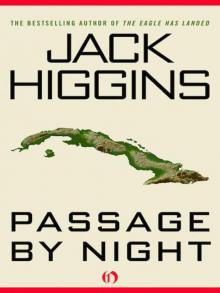 Passage by Night (v5)
Passage by Night (v5)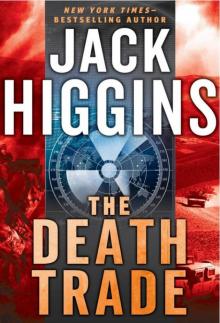 The Death Trade sd-20
The Death Trade sd-20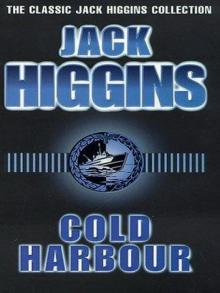 Cold Harbour
Cold Harbour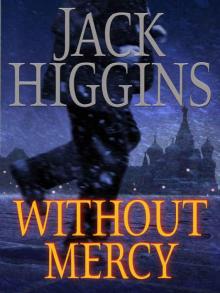 Without Mercy
Without Mercy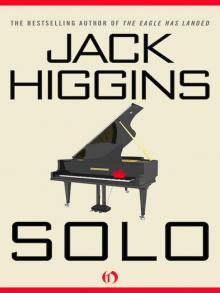 Solo (Aka the Cretan Lover)(1980)
Solo (Aka the Cretan Lover)(1980) First Strike
First Strike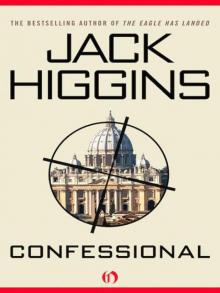 Confessional - Devlin 03 (v5)
Confessional - Devlin 03 (v5)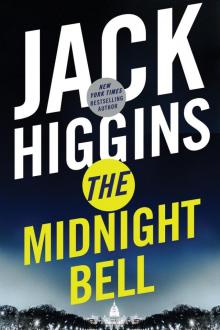 The Midnight Bell
The Midnight Bell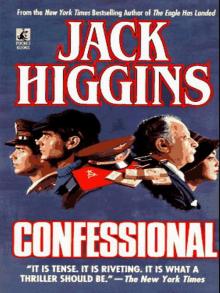 Confessional
Confessional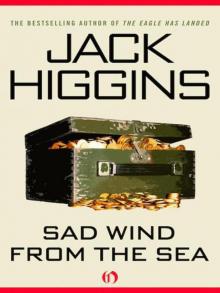 Sad Wind from the Sea (v5)
Sad Wind from the Sea (v5)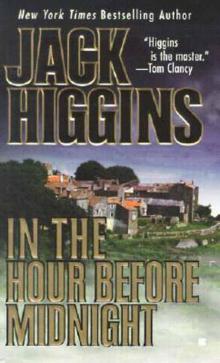 In The Hour Before Midnight aka The Sicilian Heritage
In The Hour Before Midnight aka The Sicilian Heritage Wrath of the Lion
Wrath of the Lion SDillon 20 - The Death Trade
SDillon 20 - The Death Trade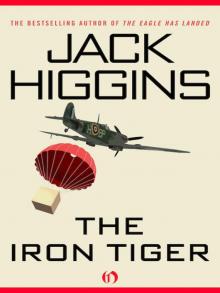 the Iron Tiger (1974)
the Iron Tiger (1974)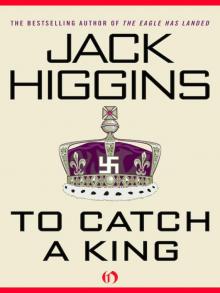 To Catch a King
To Catch a King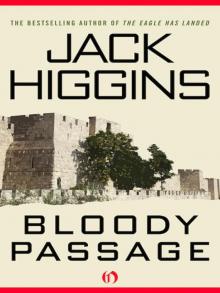 Bloody Passage (1999)
Bloody Passage (1999) Wrath of the Lion sd-8
Wrath of the Lion sd-8 Sharp Shot
Sharp Shot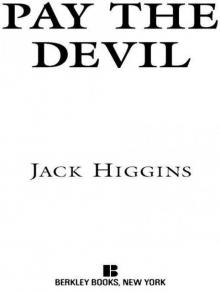 Pay the Devil (v5)
Pay the Devil (v5) A Devil Is Waiting
A Devil Is Waiting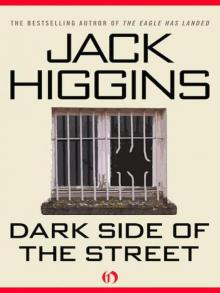 Dark Side of the Street - Simon Vaughn 01 (v5)
Dark Side of the Street - Simon Vaughn 01 (v5)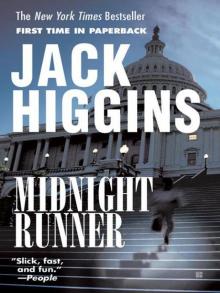 Midnight Runner - Sean Dillon 10
Midnight Runner - Sean Dillon 10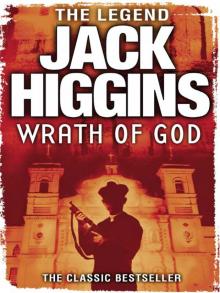 Wrath of God
Wrath of God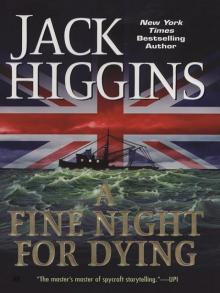 A Fine Night for Dying
A Fine Night for Dying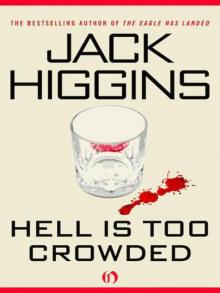 Hell Is Too Crowded v5)
Hell Is Too Crowded v5)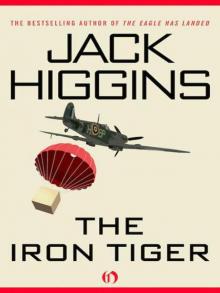 the Iron Tiger (v5)
the Iron Tiger (v5)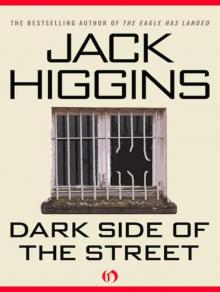 Dark Side of the Street pc-5
Dark Side of the Street pc-5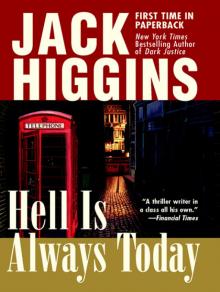 Hell Is Always Today
Hell Is Always Today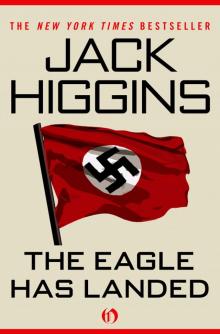 Eagle Has Landed
Eagle Has Landed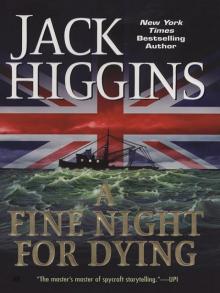 A Fine Night for Dying pc-6
A Fine Night for Dying pc-6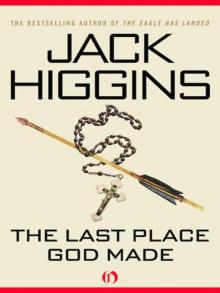 the Last Place God Made (v5)
the Last Place God Made (v5)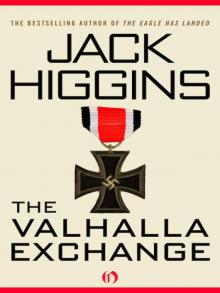 the Valhalla Exchange (1976)
the Valhalla Exchange (1976)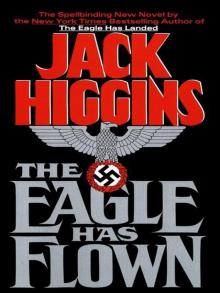 The Eagle Has Flown
The Eagle Has Flown Sure Fire
Sure Fire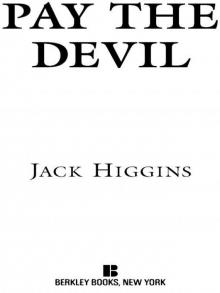 Pay the Devil (1999)
Pay the Devil (1999)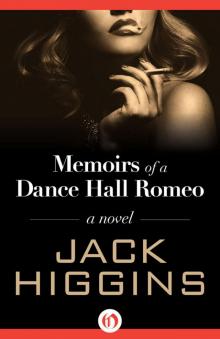 Memoirs of a Dance Hall Romeo
Memoirs of a Dance Hall Romeo![a Prayer for the Dying (1974)[1] Read online](http://i1.bookreadfree.com/i1/04/02/a_prayer_for_the_dying_19741_preview.jpg) a Prayer for the Dying (1974)[1]
a Prayer for the Dying (1974)[1]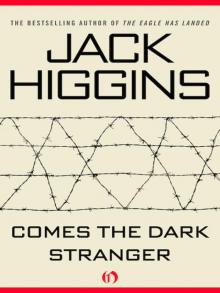 Comes the Dark Stranger
Comes the Dark Stranger Dark Side Of the Island (v5)
Dark Side Of the Island (v5)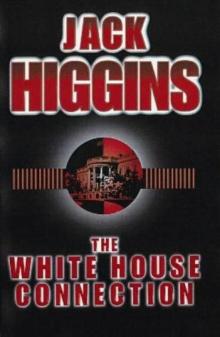 The White House Connection sd-7
The White House Connection sd-7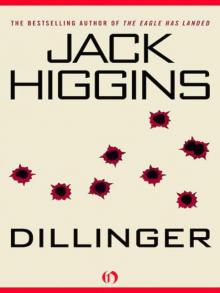 Dillinger (v5)
Dillinger (v5) Eye of the Storm
Eye of the Storm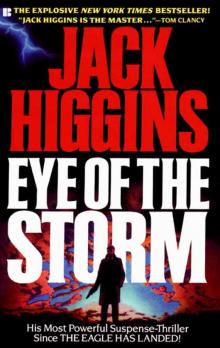 Eye Of The Storm aka Midnight Man
Eye Of The Storm aka Midnight Man A Darker Place
A Darker Place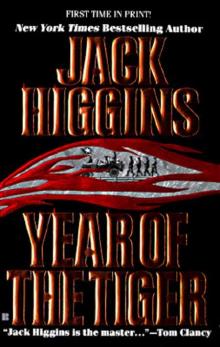 Year Of The Tiger
Year Of The Tiger Death Run
Death Run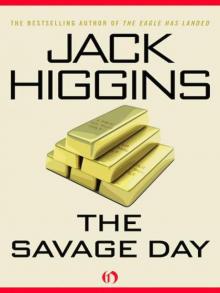 the Savage Day - Simon Vaughn 02 (v5)
the Savage Day - Simon Vaughn 02 (v5)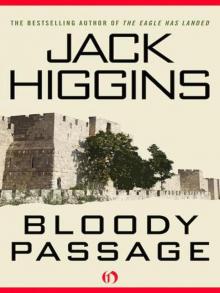 Bloody Passage (v5)
Bloody Passage (v5)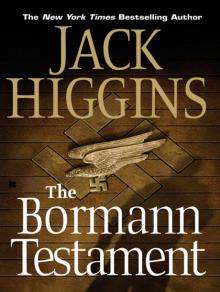 The Bormann Testament
The Bormann Testament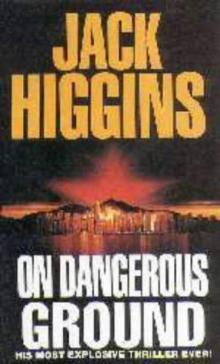 On dangerous ground sd-3
On dangerous ground sd-3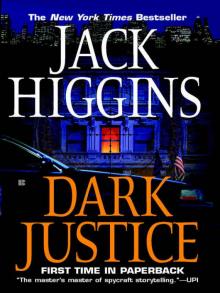 Dark Justice
Dark Justice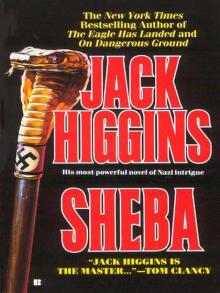 Sheba
Sheba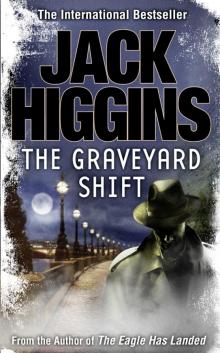 The Graveyard Shift
The Graveyard Shift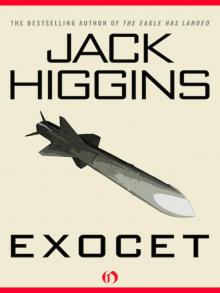 Exocet (1983)
Exocet (1983)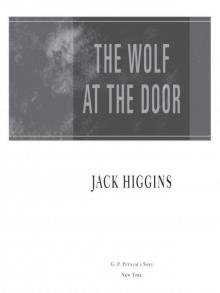 The Wolf at the Door
The Wolf at the Door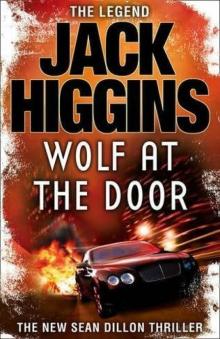 The wolf at the door sd-17
The wolf at the door sd-17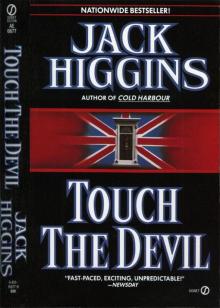 Touch The Devil
Touch The Devil The President’s Daughter
The President’s Daughter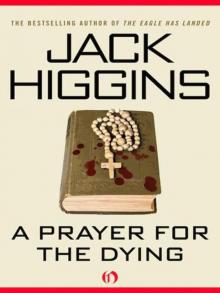 A Prayer for the Dying (v5)
A Prayer for the Dying (v5)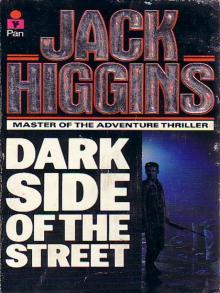 Dark Side Of The Street
Dark Side Of The Street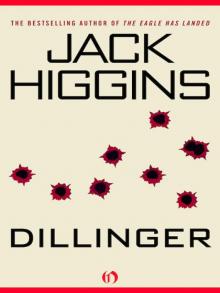 Dillinger (1983)
Dillinger (1983)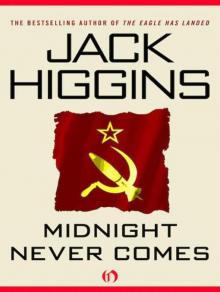 Midnight Never Comes pc-4
Midnight Never Comes pc-4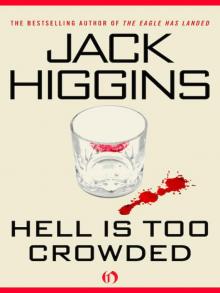 Hell Is Too Crowded (1991)
Hell Is Too Crowded (1991)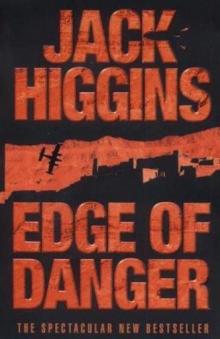 Edge of Danger sd-9
Edge of Danger sd-9 The Thousand Faces of Night (v5)
The Thousand Faces of Night (v5)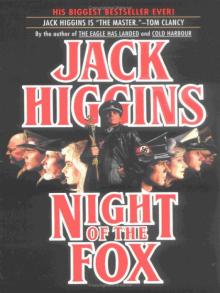 Night Of The Fox
Night Of The Fox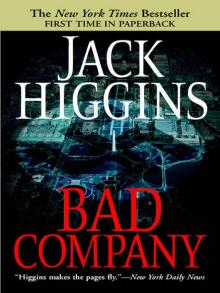 Bad Company
Bad Company The Killing Ground
The Killing Ground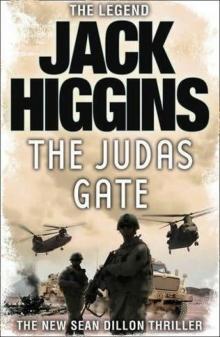 The Judas gate sd-18
The Judas gate sd-18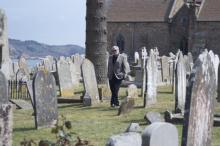 The Thousand Faces of Night (1961)
The Thousand Faces of Night (1961)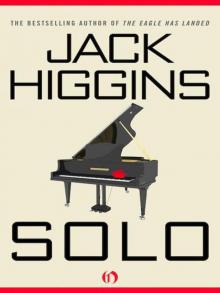 Solo (Aka the Cretan Lover) (v5)
Solo (Aka the Cretan Lover) (v5)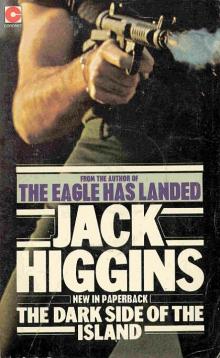 The Dark Side Of The Island
The Dark Side Of The Island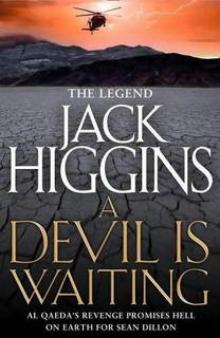 A Devil is vaiting sd-19
A Devil is vaiting sd-19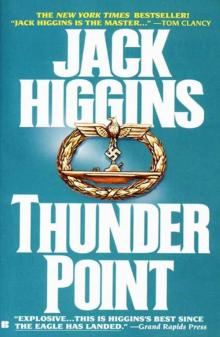 Thunder Point
Thunder Point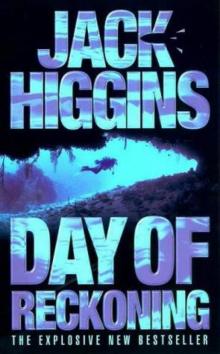 Day of Reckoning sd-8
Day of Reckoning sd-8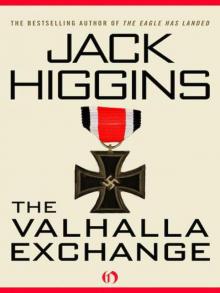 the Valhalla Exchange (v5)
the Valhalla Exchange (v5)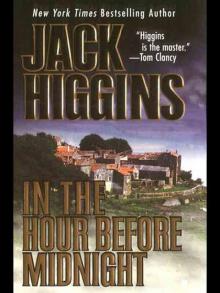 In the Hour Before Midnight
In the Hour Before Midnight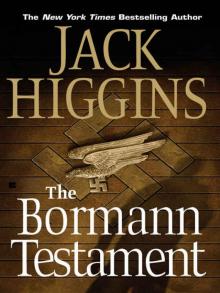 The Bormann Testament (The Testament of Caspar Schultz)
The Bormann Testament (The Testament of Caspar Schultz) The Judas Gate
The Judas Gate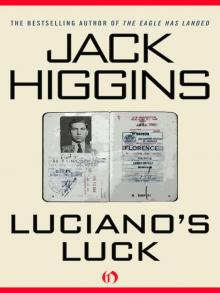 Luciano's Luck
Luciano's Luck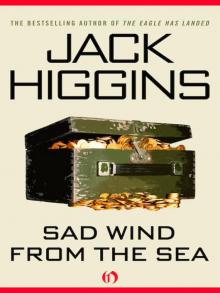 Sad Wind from the Sea (1959)
Sad Wind from the Sea (1959)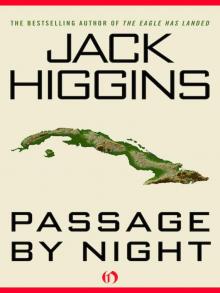 Passage by Night (1987)
Passage by Night (1987)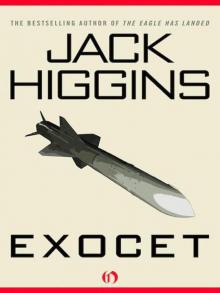 Exocet (v5)
Exocet (v5)